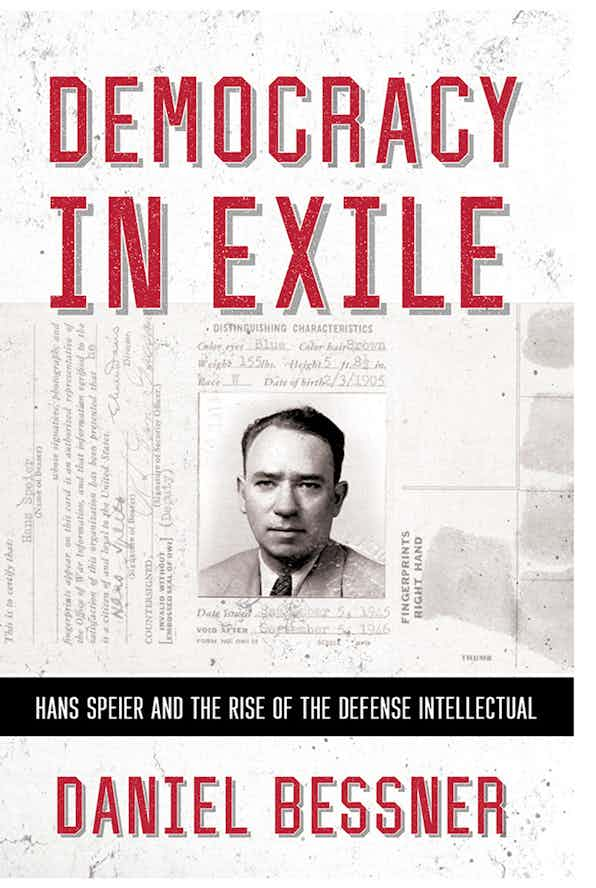Whatever one thinks of the parallel to the present, it’s striking to reflect for a moment on just how much of the 20th century’s political thought was forged in the crucible of Weimar: Hannah Arendt, Leo Strauss, Herbert Marcuse, Theodor Adorno, and Max Horkheimer personally witnessed the downfall. Their ideas are, in one way or another, responses and reactions to that experience. The ruminations of the Weimar exiles that washed up on America’s shores were not isolated to academia or the opinion columns either, but have directly shaped US policy: the story of Leo Strauss’s influence on the neoconservative movement that birthed the Iraq War is fairly well known.
Less well known, but a figure with perhaps even more direct influence on American foreign policy thinking, is Strauss’s fellow exile and close friend, the sociologist Hans Speier, who is now subject of Daniel Bessner’s new book, Democracy in Exile: Hans Speier and the Rise of the Defense Intellectual. Speier is obscure compared to the other exiled luminaries, but his legacy is very much still with us.
Early in the Cold War, he had a hand in the foundation of the RAND Corporation, MIT’s Center for International Studies, and the Ford Foundation’s Center for Behavioral Studies. In short, he played a major role in the creation of what’s been called “the military-industrial-intellectual complex”: the network of private and quasi-private think tanks that make up our largely unaccountable foreign policy establishment — what vulgar, perfervid minds today might call the “the deep state.”
In fact, far from being historical marginalia, Democracy in Exile is directly relevant to a number of contemporary debates, not just about foreign policy but on the nature of politics itself. To list just some of the salient questions raised by Bessner’s book: What is the role of intellectuals and ideas in politics? How are ideas institutionalized? How should democracies fight propaganda and psychological warfare coming from authoritarian nations? Should policy deliberation take place in public forums or in expert councils of state? How should the technocratic elite be made accountable to the democratic will? And finally, is there a true democratic public sphere, or is politics just manipulation, force, and fraud all the way down?
